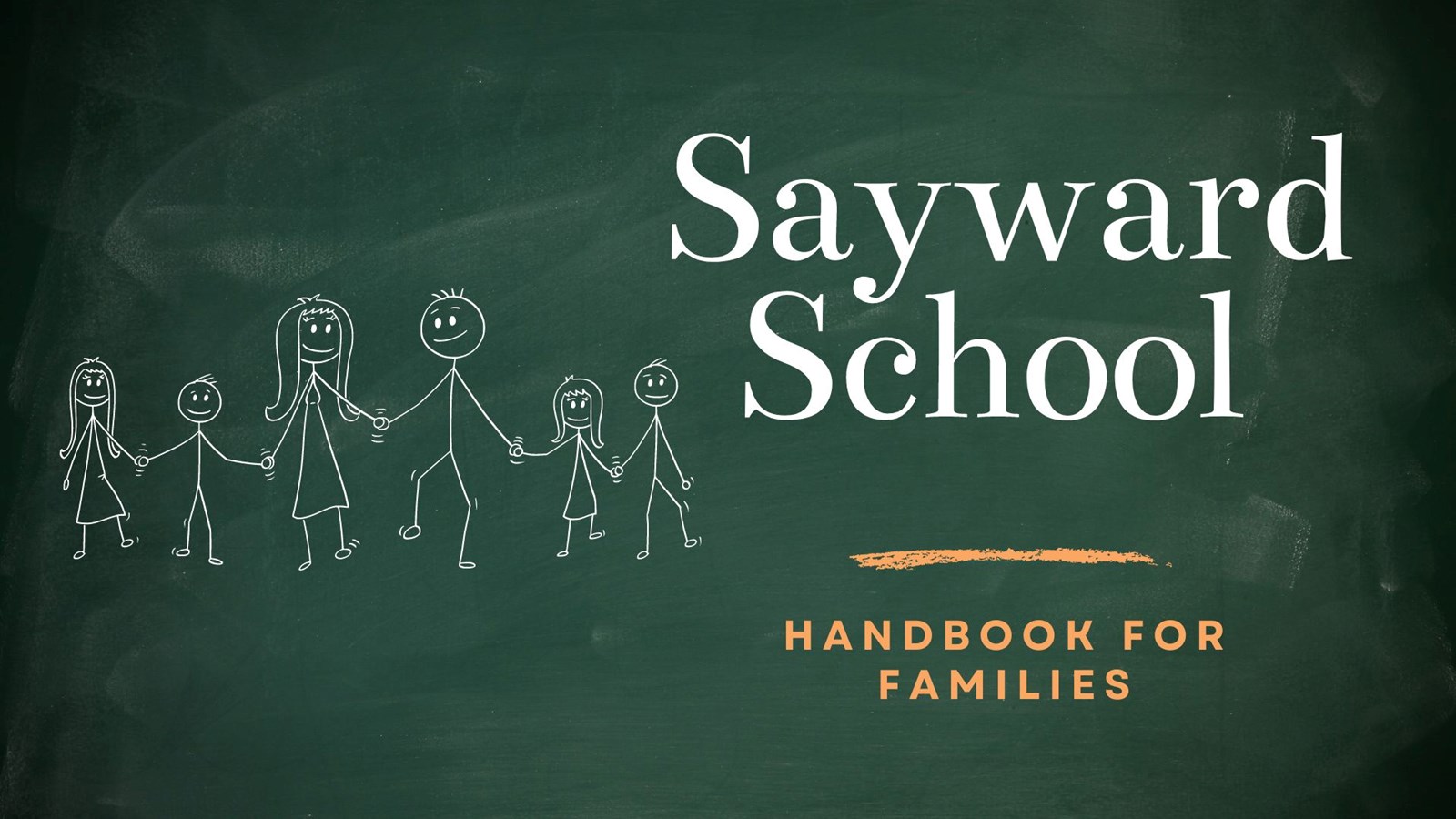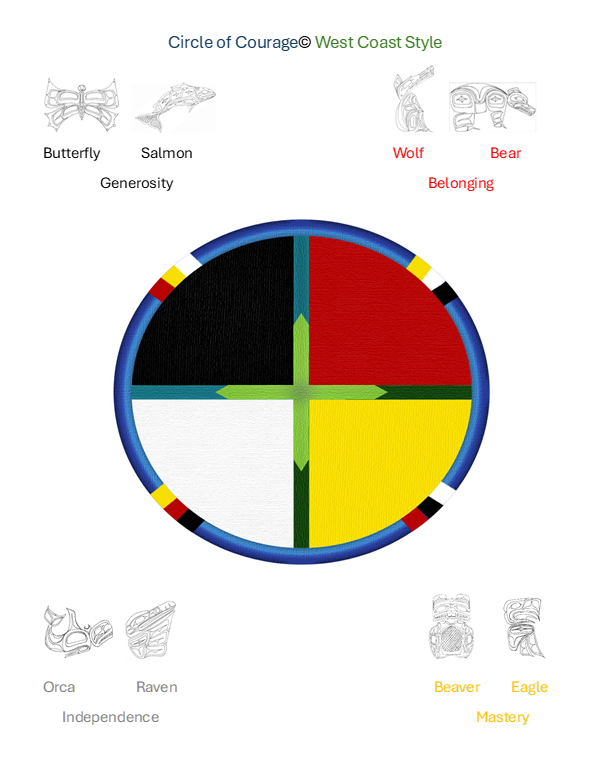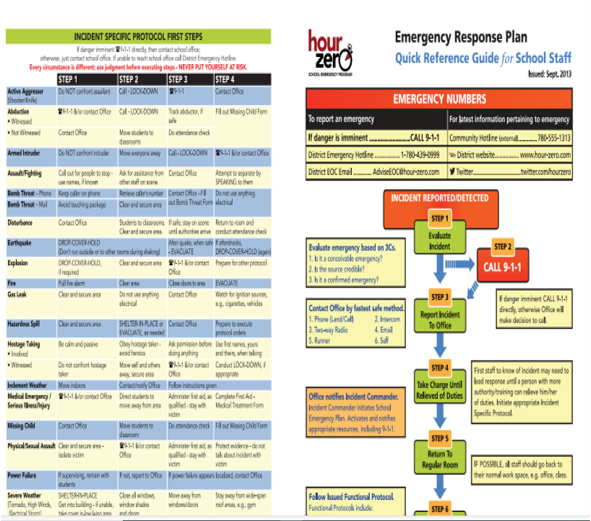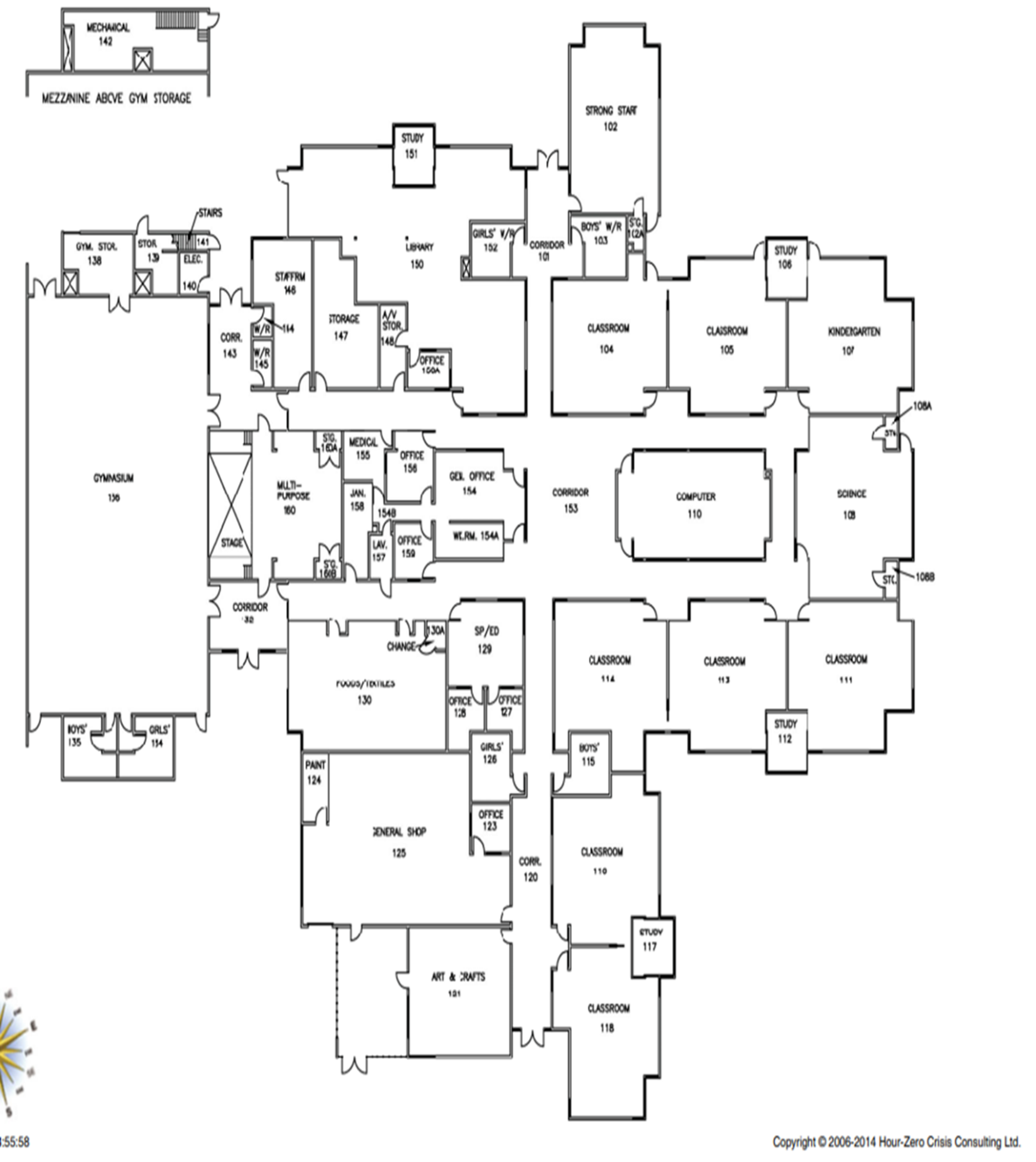School Handbook for Families


Sayward School Handbook
Table of Contents
1. Welcome Message 2. School Mission and Vision
3. School & District Staff Directory 4. School Operations
- SD72 2024 – 2025 Calendar
- School Hours
- Supervision
5. School Policies 6. Instructional Guidelines
- Attendance - Classroom Management
- Code of Conduct - Curriculum
- Health and Safety - Assessment
- SBT
7. Communication 8. Appendices
- Staff Meetings - School Events List
- Parent-Teacher Communication - West Coast Circle of Courage©
- Code of Conduct
- Emergency Procedures
- Forms
1. Welcome Message
Welcome to Sayward School! We are excited to have you as part of our dedicated team. This handbook is designed to provide you with important information about our school's policies, procedures, and resources. We believe that by working together, we can create a nurturing and effective learning environment for our students.
This handbook contains a lot of the basic information needed for easy reference as you navigate through the year. This is a living document and so it may change over time. You will be alerted to changes as they happen. We are also open to staff feedback for additions, corrections, or changes.
2. School Mission and Vision
Mission: Our mission is to provide a safe, supportive, and stimulating environment where every child can achieve their full potential. We strive to meet each student where they are at and assist them in adjusting to a school environment, creating a sense of belonging for every child who walks through our doors.
Vision: We envision a school where students are engaged, motivated, and prepared for the challenges of the future. We want our students to feel ready for each new challenge as well as for their next school environment whether that be a different elementary school or when they go off to middle school.
*We base our mission and our vision on the Circle of Courage©. Please see the Appendix for more information
3. Staff Directory
School Staff | Role | Contact Information | ||
General Office | 250.282.3314 |
| ||
Kai Taylor | Principal |
| ||
Catherine Clinton | Admin Assistant & First Aid |
| ||
Sandy Stephens | Learning Support Indigenous Support Teacher Library-Centric Prep Teacher |
| ||
Aidan Passingham | K/1 Teacher |
| ||
Amanda Douglas | 2/3 Teacher |
| ||
Melissa Cada | 4/5 Teacher |
| ||
Ellen Smith | Music Teacher |
| ||
Jamie Levin | EA #2 First Aid Person |
| ||
Kayla McCallum | EA |
| ||
Trish Woodward | EA |
| ||
Rosaura Cruz Jimenez | Signing EA | rosaura.cruz-jimenez@sd72.bc.ca
| ||
Audrey Ordano | Strong Start Facilitator On-Call EA – Mondays only |
| ||
Linda Nepraunig | Bus Driver |
| ||
Mark Johnson | Casual Bus Driver |
| ||
Brenna Robson | Custodian |
| ||
Melissa Holmes | Noon Hour Supervisor On call RA |
| ||
District Staff – Senior Leadership Team | ||||
Geoff Manning | Superintendent/CEO | natalie.crawshaw@sd72.bc.ca | ||
Kevin Patrick | Secretary-Treasurer/CFO | natalie.crawshaw@sd72.bc.ca | ||
Philip Cizmic | Associate Superintendent | darlana.devito@sd72.bc.ca | ||
Stephen Hawkins-Bogle | Director of Instruction | darlana.devito@sd72.bc.ca | ||
Brenna Ewing | Director of Inclusive Education | 250.286.4400 | ||
Debra Martel | Director of Indigenous Education & ELL | 250.830.2328 | ||
4. School Information:
~ School Hours: Most staff arrive by at least 8 am. The bus arrives at around 8:30, with some students walking or riding bikes to school. Some students are dropped off by a parent or caregiver.
~ Bell Schedule:
Bus Arrival | Approx. 8:30 – Breakfast Cart is taken outside – supervision by EA, Admin Staff, anyone else who is available |
Beginning of the Day Bell | 8:45 am |
Morning Recess | 10:15 – 10: 30 |
Lunch Recess | 11:45 – 12:15 |
Eating Time | 12:15 – 12:30 |
End of the Day Bell | 2:30 (Bus leaves at appox. 2:40) |
~ Lunch and Recess Supervision Schedules: Principal, LST, Itinerant staff, etc. will help supervise as much as possible,
– Schedule is subject to change if/when needed. Please ensure any TOCs are aware of their supervision expectations.
Supervision | Monday | Tuesday | Wednesday | Thursday | Friday |
Morning Recess 15 minutes (10:15 – 10:30) |
Amanda |
Melissa |
Aidan |
Amanda |
Amanda |
First 15 Minutes of Long Recess |
Aidan
|
Aidan |
Amanda |
Melissa |
Aidan |
|
|
|
|
|
|
Eating Time (12:15-12:30) | Monday | Tuesday | Wednesday | Thursday | Friday |
4/5/6 Class | Melissa | Amanda | Melissa | Aidan | Melissa |
2/3 Class | Catherine | Catherine | Catherine | Catherine/ Kitchen | Catherine |
K/1 | EA in Kitchen | EA in Kitchen | EA in Kitchen | EA in Kitchen | EA in Kitchen |
~ Attendance: Regular attendance is essential for student success. Staff are expected to model good attendance and follow procedures for reporting absences through Cims and Smartfind. Please also email or text the school administrator if you are going to be away so that the school is aware.
~ Code of Conduct: All staff and students are expected to adhere to the school's code of conduct, promoting a positive and respectful environment. Please note that SD 72 is currently working on a “Visitor/Parent/Caregiver Code of Conduct” we hope will be completed this fall. Please see Appendix #2 for the full SD72 Elementary School Code of Conduct.
*Some Code of Conduct Highlights:
Personal Devices: Cell phones, tablets and other personal devices are not allowed to be used before, during, or after school. If students have one it must be kept in their backpack or the office. Staff are expected to model responsible cell phone use as well.
Bus: The Code of Conduct is always in effect while in a bus line-up and on the bus.
Sending students to the office: Please ensure that when you need to send a student to the office, they are to go to the main office and check in with the admin assistant first. They may have to wait there until the principal is available. The principal will follow up with the staff member who sent the student and any other relevant people.
~ Emergency Procedures: Detailed procedures for fire drills, lockdowns, and other emergencies. Please see the Appendix.
6. Instructional Guidelines
Classroom Management: Strategies and expectations for maintaining a positive and productive classroom environment are required. If you need assistance in this area, please talk to the principal or a mentor teacher for advice.
Class Reviews: A meeting will occur in the fall for a “Class Review” This review will include going over your year-long plan (units and general topics you want to cover this year). If you need a template for this process, please see the principal.
Assessments:
DIBLES – This screening tool is completed three times over the school year. The data should guide your literacy interventions. This year’s due dates are as follows: | |||||
Fall | Winter | Spring | |||
October 1, 2025
| January 31, 2026
| May 1, 2026
| |||
|
|
| |||
FSAs – Grade 4s only | Start | Last day to administrate | |||
| October 1, 2025 | November 10, 2025 | |||
Reports – Three formal reporting periods with three informal reports as follows:
|
| ||||
Informal | End of September | Student-specific contact is expected to have been made with the family/caregivers of each student |
| ||
Informal | Oct 30, 2025 | Student Led Conferences |
| ||
Formal | Dec 12, 2025 | Written Report Cards – Home this week |
| ||
Formal | March 9, 2026 | Written Report Cards – Home this week |
| ||
Informal | April 30, 2026 | Student Led Conferences |
| ||
Formal | June 25, 2026 | Written - School Year Summary Report Card |
| ||
Learning Support and School Based Team: Meets twice a month – one with the full team for referrals and review assessments, one with a core group to review, update, and discuss students in a more general way. Please the Appendix for a link to the SBT Referral Form.
SBT Members: |
|
Kai Taylor | Principal |
Sandy Stephens | LST for Sayward |
Jeremiah Lang | SD72 School Psychologist |
Kylie Noble | Inclusive Education Support Teacher |
Emma Che | School Counsellor |
TBD | Child and Youth Worker |
Laura Louter | Speech Language Pathologist |
Shyla Johnson | Occupational Therapist |
7. Communication
Staff Meetings: Staff meetings will be held twice per month, and each meeting will be no more than 1.5 hours, starting at 2:45pm. The first Tuesday of every month is a “For Information” staff meeting and will include the Health and Safety Meeting components. The third Tuesday of the month will be a “For Learning” staff meeting for teachers although support staff are welcome to join us. This year’s focus will be on assessment practices and the new Literacy Framework and our Student Achievement Plan. Teaching staff are expected to be at all staff meetings and to do their best to plan meetings and appointments on other days. Thank you for your attention and commitment to this.
Parent/Caregiver-Teacher Communication: Best practices for communicating with parents and guardians are regular and meaningful. We strive to send general updates as well as student specific positive messages and when needed, and to update caregivers about an event or concern that may have occurred during the school day. Feel free to cc the principal on any emails you send. If you have a tricky parent/caregiver situation, please make sure to involve the principal and/or the Learning Support Teacher.
School Events:
September
- 12th - Picture Day/Class Pictures
- 17th - Welcome Back Pancake Breakfast
- 22nd - Tour de Rock Potluck Dinner (Community Event)
- 23rd – Tour de Pond
- 25th - Terry Fox Run
- 29th - Truth & Reconciliation Day School Celebrates
- 30th No School
October
- 7th -K Hearing screening
- 16th - Earthquake/Fire Drill
- 21st – Holly Hills
- 24th - Provincial Pro D Day
- 30th – Student led Conferences
- 31st – Celebrate Halloween
November
- Circle of Courage Assembly #1
- 11th – Remembrance Day
December
- Student “Shopping Day” (PAC event)
- Winter Celebration
- Dec 19th – Jan. 5th - Winter Break
January
- 16th – Pro D Day
- Circle of Courage Assembly #2
February
- 16th Family Day – No School
- 17th – Pro D Day
March
- 23rd – April 6th – Spring/Easter Break
April
- 7th – Pro D Day
- 21st – Fire Prevention day
- Circle of Courage Assembly #3
- 30th – Student Led Conference
May
- Camp Bob (TBD)
June
- Fun Fair (PAC Event)
- 20th - Indigenous Peoples’ Day (21st)
- Circle of Courage/”Grad” Assembly#4
- Year-end Fun Day
8. Appendices:
West Coast Circle of Courage©
At Sayward Elementary School, we value safety, belonging, education, and physical and social/emotional health. To further create a culture in which all students can open their minds and hearts to being a part of our school as well as develop the skills to learn and engage in school activities and events, we will be implementing the Circle of Courage© as our school philosophy.
While this is originally from American Culture, it is relevant to children from anywhere. The Circle of Courage is based on traditional values from cultures who, like us, cherish children and treat them with respect. Current research in education and youth development shows that these practices align with what children need to do well and feel confident.
The Circle of Courage provides the philosophical foundation for Sayward School’s approach to working with children, families, and the community.
From the creators of the Circle of Courage:
The Circle of Courage is a model of positive youth development that integrates the wisdom of indigenous Native American philosophies of child-rearing with research in resilience science and positive youth development. It is based on the principle that children have four universal growth needs: belonging, mastery, independence, and generosity and that when these needs are met, children can flourish. Recognizing that the Circle of Courage “transcend[s] cultural boundaries” and that “all children have the same growth needs” the Circle of Courage is an offering for all youth across cultures and contexts.1 When children have supportive environments where they can build strengths, their life pathways can change.2
1. Belonging: The universal longing for human bonds is nurtured relationships of trust so that the child can say, “I am loved.”
2. Mastery: The child’s inborn thirst for learning is nurtured; learning to cope with the world, the child can say, “I can succeed.”
3. Independence: The child’s free will is nurtured by increased responsibility so that the child can say, “I am in charge of my life.”
4. Generosity: The child’s character is nurtured by concern for others so that the child can say, “I have a purpose for my life.” 3
1. Brendtro, M., Brokenleg, M., & Van Bockern, S. (2013). The Circle of Courage: Developing resilience and capacity in youth. International Journal for Talent Development and Creativity, 1(1), 67-74. 2, 3. Brendtro, M., Brokenleg, M., & Van Bockern, S. (2002). Reclaiming youth at risk: Our Hope for the Future. (Rev. ed.). Bloomington, IN: Solution Tree Press.

SD72 Code of Conduct – for Students and Staff
*Please note, the district is presently working on a district-wide Code of Conduct for parents/caregivers/visitors to schools.
|
Code of Conduct for Primary
- Keeping Safe: We stay away from things that could hurt us or our friends’ other students. We walk calmly inside the school and in the playground. We keep our hands and feet to ourselves.
- Being Kind and Respectful: We treat others the way we want to be treated. We use nice words and share with other students. our friends. We listen when others are talking and take turns speaking. A suggestion: We use kind, caring, helpful words that make others feel good. We do things that make others feel good about themselves and feel cared for.
- Following Directions: We listen carefully to our school adults and do what they ask us to do.
- Telling a Grown-Up: If someone is being mean to us or our friends, other students, we tell a teacher or another grown-up we trust. We don't keep it a secret.
- Learning and Trying our Best: We pay attention in class and try our best on our schoolwork. We ask for help if we need it and don't give up when things are hard.
- Using Computers and Technology Safely: We use computers and tablets for learning and follow the rules. We don't click on things we're not supposed to or use them to be mean.
- Being Honest and Fair: We tell the truth and don't cheat or take things that don't belong to us. We play games and share with others in a fair way.
- Being a Good Friend: We include everyone in our games and activities. We say nice things and don't tease or bully others. We help others when they need it.
- Taking Care of Our School: We keep our school clean and don't damage things on purpose. We put our trash in the bin and take care of our belongings.
- Respecting Differences: We celebrate how everyone is unique and special. We don't make fun of others because they look or act differently. We treat everyone with kindness and respect.
|
Code of Conduct for Students (Grades 4-5)
Be Kind and Respectful
- Treat others the way you want to be treated.
- Use kind words and actions.
- Respect everyone, including school adults, classmates, and visitors.
Keep our School Safe
- Follow safety rules and listen to school adults.
- Report any unsafe situations or problems to a school adult.
Follow Instructions
- Listen carefully to school adults and follow their directions.
- Raise your hand and wait to be called on before speaking. Follow the classroom expectations?
Speak Up Against Bullying
- Tell an adult if you see someone being bullied or if you're being bullied.
- Be a friend to those who need support.
Focus on Learning
- Do your best to attend every day.
- Pay attention in class and try your best. Ask for help when needed and don’t give up.
- Create a learning environment for others to do their best learning.
Use Technology Responsibly
- Only use school computers and devices for learning purposes.
- Treat technology with care and follow the rules for internet safety.
Be Honest and Fair
- Always tell the truth, even when it's hard.
- Play games and sports fairly, without cheating or being mean.
Be a Good Community Member
- Include everyone and be kind to your classmates.
- Help others when they need it and stand up for what's right.
- Leadership...Suggestion – Become a positive leader in the school by volunteering, helping other students, and taking a lead to create a positive school community.
Take Care of Our School
- Keep our school clean and tidy.
- Respect school property (includes supplies and equipment) and report any damage or problems.
- Use materials so we do not create waste.
Respect Differences
- Celebrate everyone's differences and treat everyone with kindness.
- Don't judge others based on how they look, talk, or act.
Following the Code of Conduct helps us create a happy and welcoming school community where everyone can feel safe and valued. Let's work together to make Sayward Elementary a great place to learn and grow!
Grade 4/5 Sample with I statements:
Our Promise: I, as a student of Sayward Elementary, pledge to create a safe, caring, and positive environment where everyone can learn and grow together.
1. Be Kind and Respectful
- I will treat others the way I want to be treated.
- I will use kind words and actions.
- I will respect everyone, including teachers, classmates, and visitors.
2. Keep Our School Safe
- I will follow safety rules and listen to adults.
- I will report any unsafe situations or problems to a teacher.
3. Follow Instructions
- I will listen carefully to teachers and follow their directions.
- I will raise my hand and wait to be called on before speaking.
4. Speak Up Against Bullying
- I will tell an adult if I see someone being bullied or if I'm being bullied.
- I will be a friend to those who need support.
5. Focus on Learning
- I will pay attention in class and try my best showing care and pride in my work
- I will be open to learning new things
- I will complete assignments on time and ask for help when I need it. (but what if they can’t complete on time?
6. Use Technology Responsibly
- I will only use school computers and devices for learning purposes.
- I will treat technology with care and follow the rules for internet safety.
7. Be Honest and Fair
- I will always tell the truth, even if it's hard.
- I will play games and sports fairly, without cheating or being mean.
8. Be a Good Friend
- I will include everyone and be kind to my classmates.
- I will help others when they need it and stand up for what's right.
9. Take Care of Our School
- I will keep our school clean and tidy.
- I will respect school property and report any damage or problems.
10. Respect Differences
- I will celebrate everyone's differences and treat everyone with kindness.
- I will not judge others based on how they look, talk, or act.
Following the code of conduct helps me create a happy and welcoming school community where everyone can feel safe and valued. Let's work together to make Sayward Elementary a great place to learn and grow!
Emergency Procedures

The drills are as follows:
Fire Drills | 6 per year | 3 are full drills with alarms and practice evacuations, 3 are in class reviews |
Earthquake Drills | 2 per year | One can be combined with a fire drill |
Hold and Secure/Shelter in Place | 1 per year | Practicing for a threat outside the building (could be a person, a wild animal, etc.) |
Lock Down | 1 per year | Threat could be inside or outside the building, RCMP assist us with this drill |

Sayward Elementary School
ON-CALL STAFF: SAFETY ORIENTATION INFO
Principal – Kai Taylor Cell: 250-204-2398
Admin Assistant: Catherine Clinton (& First Aid)
Call Catherine Clinton via class phone, in TEAMS, or go in person for any questions / needs:
BELL SCHEDULE:
N/A - Warning Bell | 11:45 - Recess Outside Play Time |
8:45 - Start – line up at outside class door | 12:15 - Return to class or kitchen to eat |
10:15 - Recess Outside Play Time | 12:30 - Instruction Resumes |
10:30 - Instruction Resumes | 2:30 - Home Time |
FIRST AID:
- If either you or a student gets injured, call the office to obtain the correct help
- First Aid Supplies are in the main office, just past the principal’s office. It can be accessed through the office or the hallway.
- The eyewash station is in the first aid room.
SAFETY and/or RISK REDUCTION PLANS:
- Please ask Christine or Sandy if you will be working with a student on a safety plan. If so, you will be given the necessary information.
![]()
EMERGENCY MEETING AREA:
- In the event of an emergency (earthquake, fire...) the entire school will meet in the middle of the grass playing field.
- Students gather quietly, exiting the school through the outside classroom doors.
- Take attendance. Be sure to include the first and last names of ALL adults in your group.
- Send a runner to the admin. assistant.
- Flash the appropriate Status Card
Forms and Templates: All forms are located on SD72’s website – “Knowledge Centre”
School Based Team
Field Trip Forms – copies in the office
Principal Field Trip Approval Form





